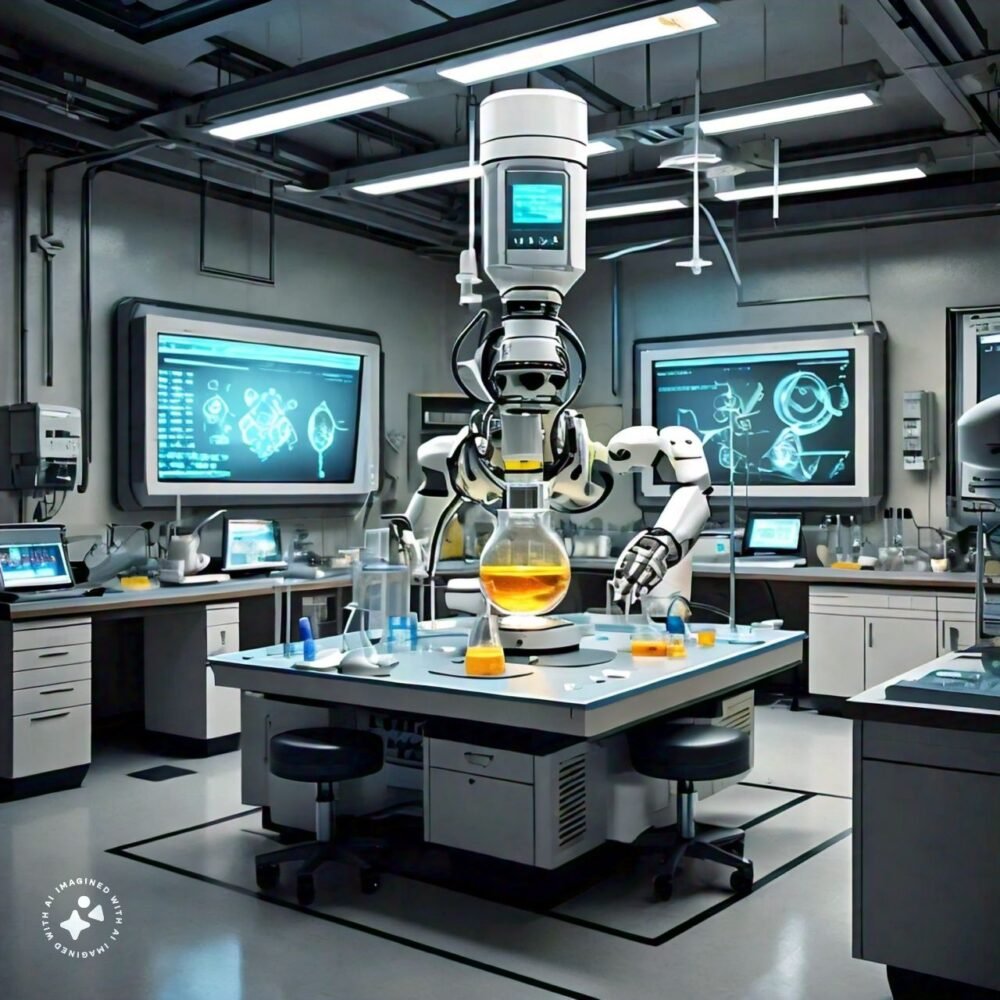In recent years, the integration of artificial intelligence (AI) into healthcare systems has sparked a revolution, promising unparalleled advancements in diagnosis, treatment, and patient care. This article dives into how AI is reshaping the healthcare landscape, from streamlining diagnosis to personalizing treatment plans and revolutionizing medical imaging analysis.

1. Enhancing Diagnosis:
AI algorithms are adept at analyzing vast amounts of medical data with unprecedented speed and accuracy, enabling healthcare professionals to make more informed decisions. Machine learning models can sift through electronic health records, medical images, and genetic information to identify patterns and detect anomalies that may elude human observation. For example, in the field of radiology, AI-powered image analysis tools can assist radiologists in detecting subtle signs of diseases such as cancer, thereby facilitating early diagnosis and intervention.
Moreover, AI-based diagnostic systems have demonstrated remarkable capabilities in areas such as dermatology, pathology, and ophthalmology. By leveraging deep learning algorithms trained on extensive datasets, these systems can provide rapid and accurate assessments of skin lesions, tissue samples, and retinal images, paving the way for timely interventions and improved patient outcomes.
2. Personalizing Treatment Plans:
One of the most promising applications of AI in healthcare is its ability to tailor treatment plans to individual patients based on their unique characteristics and medical history. Through the analysis of large-scale clinical datasets and genetic information, AI algorithms can identify optimal treatment strategies that take into account factors such as genetic predispositions, drug interactions, and disease progression.
For instance, AI-driven predictive analytics can help oncologists predict how a patient will respond to a particular cancer treatment based on their genetic profile and tumor characteristics. By identifying the most effective therapies for each patient, AI not only enhances treatment outcomes but also minimizes the risk of adverse reactions and unnecessary interventions.
Furthermore, AI-powered decision support systems enable healthcare providers to stay updated on the latest medical research and clinical guidelines, empowering them to make evidence-based decisions that are aligned with best practices and standards of care.
3. Revolutionizing Medical Imaging Analysis:
Medical imaging plays a crucial role in the diagnosis and management of a wide range of diseases, from cardiovascular conditions to neurological disorders. However, the interpretation of medical images can be time-consuming and subjective, leading to variability in diagnoses and treatment outcomes. AI technologies offer a solution to this challenge by automating and standardizing the analysis of medical images, thereby improving diagnostic accuracy and efficiency.
For example, deep learning algorithms trained on large repositories of medical images can detect abnormalities in X-rays, MRI scans, and CT scans with a level of accuracy that rivals or exceeds that of human experts. These AI-powered image analysis tools can expedite the interpretation process, enabling radiologists and other healthcare professionals to prioritize cases that require immediate attention and intervention.
Moreover, AI algorithms can facilitate the early detection of conditions such as Alzheimer’s disease, diabetic retinopathy, and breast cancer by analyzing subtle changes in medical images that may indicate the presence of pathology. By detecting diseases at their earliest stages, AI-driven medical imaging analysis can facilitate prompt interventions and improve patient outcomes.
Conclusion:
In conclusion, the integration of AI into healthcare holds immense promise for revolutionizing the way we diagnose, treat, and manage diseases. From enhancing diagnostic accuracy to personalizing treatment plans and revolutionizing medical imaging analysis, AI technologies are poised to transform every aspect of the healthcare ecosystem. As these technologies continue to evolve and mature, they have the potential to assist in a new era of precision medicine, where healthcare is tailored to the unique needs of each individual patient. However, realizing this vision will require ongoing collaboration between healthcare professionals, data scientists, policymakers, and technology developers to ensure that AI is deployed responsibly, ethically, and equitably for the benefit of all.




Leave a Reply